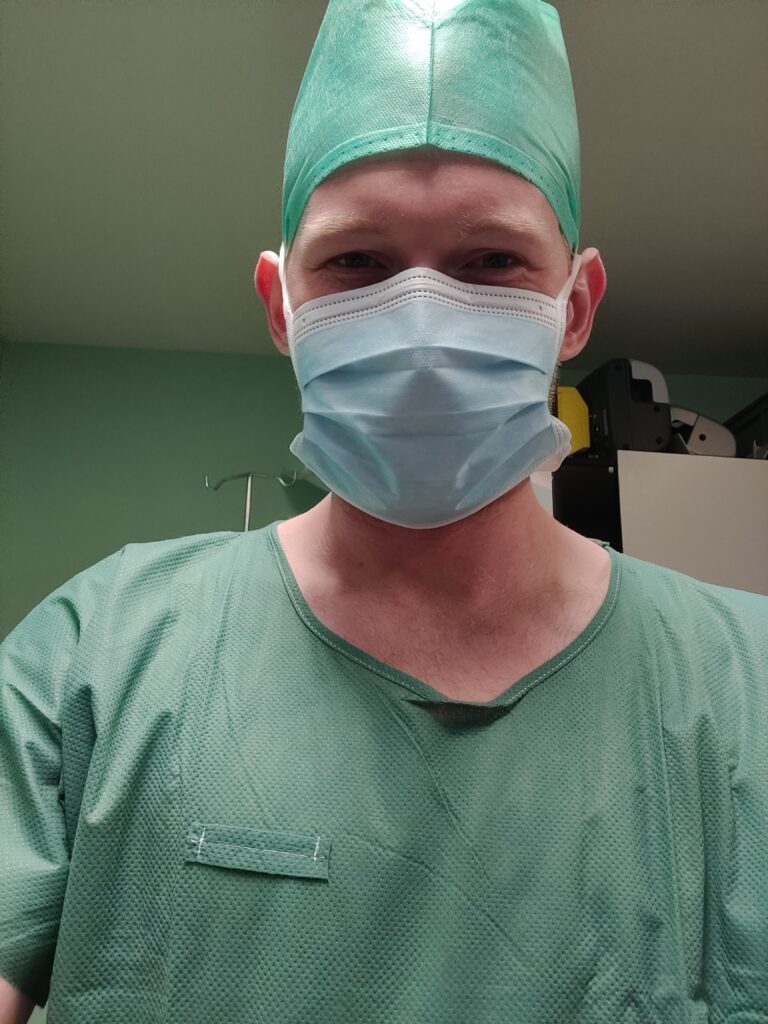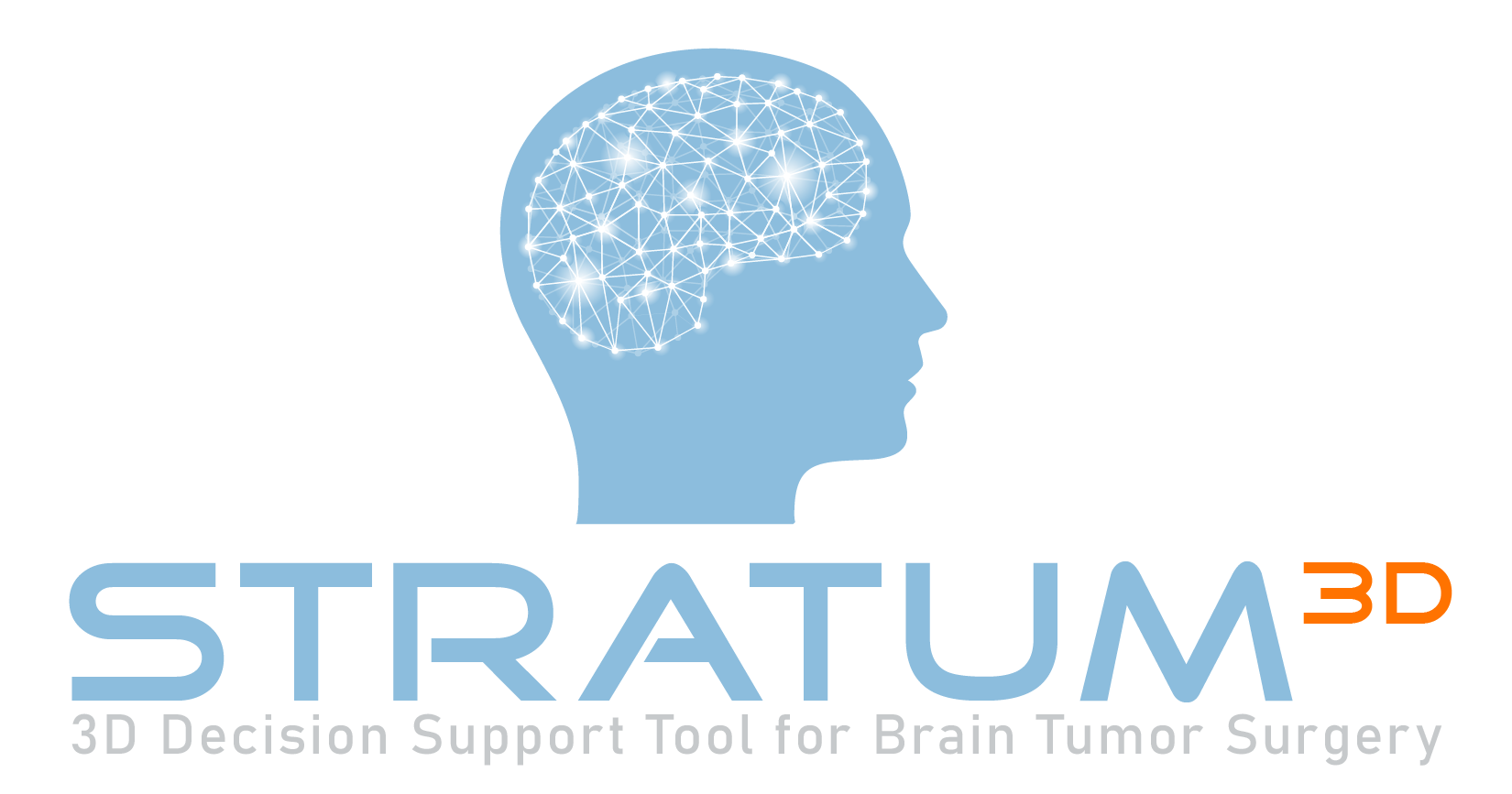At the end of October 2024, Max Verbers, a PhD candidate from Eindhoven University of Technology (TU/e), visited the University of Las Palmas de Gran Canaria (ULPGC) and the University Hospital of Gran Canaria Dr. Negrín (UHGCDN which belongs to partner FIISC) as part of the collaborative STRATUM project. Max’s research at the Biomedical Diagnostics lab of Electrical Engineering at TU/e focuses on signal processing for cancer imaging. His work integrates machine learning and deep learning techniques to enhance hyperspectral imaging and MRI, aligning closely with STRATUM’s goals of improving surgical diagnostics and guidance through innovative AI-powered tools.
During his visit, Max, accompanied by Javier Santana and Dr. Raquel Leon from ULPGC, had the unique opportunity to attend a neurosurgery at the UHGCDN. The head of the neurosurgery department, Dr. Jesús Morera, organised this visit to the surgery, that was supervised by the neurosurgeon Dr. Juan F. Piñeiro. The team observed the integration of various advanced technologies, including neuronavigation, MRI, and neurophysiological mapping, which provided real-time, critical data to guide the surgeons throughout the procedure. The seamless coordination of these technologies highlighted the complex nature of modern neurosurgery and underscored the significance of STRATUM’s Work Package 3 (WP3), which is dedicated to developing algorithms that can integrate diverse real-time data sources for enhanced decision-making during neurosurgery.
In addition to observing the surgical procedure, Max worked closely with Javier Santana, Carlos Vega, Guillermo Socorro, Dr. Raquel Leon and Dr. Himar Fabelo, researchers at ULPGC and FIISC, on an advanced hyperspectral imaging prototype designed to improve the precision of surgical imaging. Together, they developed a detailed experimental plan to adapt existing HELICoiD and ITHaCA datasets to a simulated Liquid Crystal Tunable Filter (LCTF) format. This process will allow the team to refine and optimise the algorithms before the new data is acquired, ensuring that the imaging tools are finely tuned for real-world applications. Max’s work in analysing the initial results from these experiments is crucial in assessing the performance of these algorithms and moving forward with the development of more accurate diagnostic tools within WP3.
Max’s visit has furthered STRATUM’s mission of developing AI-powered decision-support tools that will assist neurosurgeons in making more precise and informed decisions during complex surgeries. The collaboration between ULPGC, the UHGCDN-FIISC, and TU/e highlights the shared commitment of STRATUM’s partners to leverage cutting-edge technology to benefit clinical practice and transform the future of neurosurgery.




